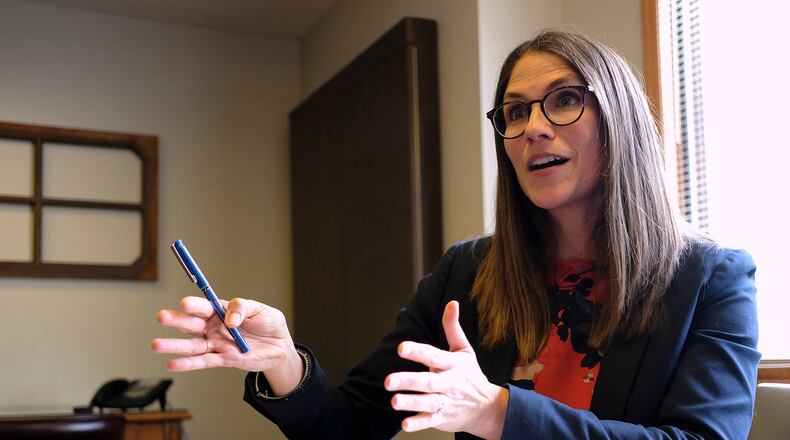Mayer said the majority of funds would go to the Mental Health Services for Clark and Madison Counties, Inc. and McKinley Hall, which provide mental health assistance and addiction treatment. She said these are especially important now as getting treatment for mental illness is becoming less stigmatized, and about one in five people develops a mental health concern over the course of their lives.
“We really have come a long way, and I do think coming out of COVID-19 there’s a readiness ... to talk about their mental health concerns and not have some of the stigma that keeps us from sharing those things,” Mayer said. “We used to be afraid of [it], thinking it’s a moral failing or a weakness.”
The last levy for the same amount passed in 2013, which cost the owner of a $100,000 home $57.44 per year or $4.79 monthly.
The opioid epidemic was a large focus for the Mental Health Recovery Board in 2013, Mayer said, and now many people are more aware of mental health struggles following COIVD-19 isolation.
Clark County Commissioner Melanie Flax Wilt said she has noticed a significant change in how people view mental illness and wellbeing in the past few years, and more people are recognizing that there is a connection between substance abuse and mental illness.
“It’s incredible how much the education and prevention has begun to finally take hold,” Flax Wilt said.
Mayer said the levy funds “follow the residents,” meaning if a Clark County resident is unable to access services within the county, it would pay for outside care.
The funds would also support the mental health crisis line that people can call for mental health emergencies at 988 instead of 911. Mayer said Greene County has the largest call center and its operators know the resources to which they can direct people in Clark County.
“If we have a (Clark County) resident that’s calling and they’re answering the calls, they’re very familiar with our care network and how to make referrals to get that person the follow up here that they need,” Mayer said.
Mayer said many people are unaware of how to navigate the system in regards to mental health until it affects them directly, and she hopes that the fact that the levy would not raise taxes and would continue providing these resources will influence people to vote for its passage.
“So it’s kind of in the back of your mind until something happens, and then you’re like, ‘Oh my goodness; I’m so grateful for this,’ because the care could benefit any of us,” Mayer said. “Even with health insurance, the dollars that we fund help offset those very high deductibles to receive care and allows people to have a sliding scale.”
About the Author

